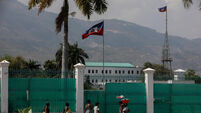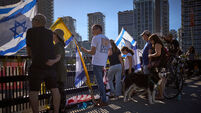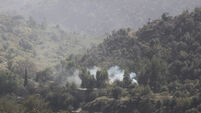Boy, 11, died days after release from hospital
Maeve Phillips said she had brought her only child, Stephen, to Temple Street Children's University Hospital on December 9, 2003 just five hours after he banged his head playing football in the yard of St John Bosco's school on Dublin's Navan Road.
Mrs Phillips had been called to the school after Stephen collided with another fifth-class pupil, hit his head off a wall and then landed on the ground while playing football during a supervised lunch break.
After several hours in their house at Ashtown Gate, Phoenix Park, Dublin 7, watching television and reading a schoolbook, Stephen complained of a headache and vomited.
Mrs Phillips and her husband Michael rushed Stephen to Temple Street
Children's Hospital around 6pm, where he was supervised for several hours.
Dr Annemarie Kavanagh, a senior house officer at the hospital, told the Dublin City Coroner's Court a nurse checked Stephen for signs of a head injury every half-hour between 7pm and 8pm but everything was found to be normal.
Dr Kavanagh said she did a thorough examination of his head for any signs of an underlying injury that would warrant an X-ray or brain scan. The doctor, who was on a general practice training scheme in Temple Street, said she found him well and discharged him at around 10pm.
She gave verbal and written advice on signs of a brain injury to his parents, who brought him home.
However, Mrs Phillips said she awoke later that night, at around 4am, to hear Stephen moaning and found him unconscious in his bed. They rushed Stephen back to Temple Street hospital, where he was found to have severe head injuries and taken to the neurological unit at Beaumont Hospital. However, he failed to recover consciousness and died on December 13, 2003.
Mr Phillips said: "Because he had a head injury should a scan not have been taken (in Temple Street)? I know he showed no signs and all that but at the end of the day, he died."
The autopsy showed Stephen died from brain swelling as a result of head injuries, a fracture of the skull and a brain haemorrhage, consistent with a fall.





